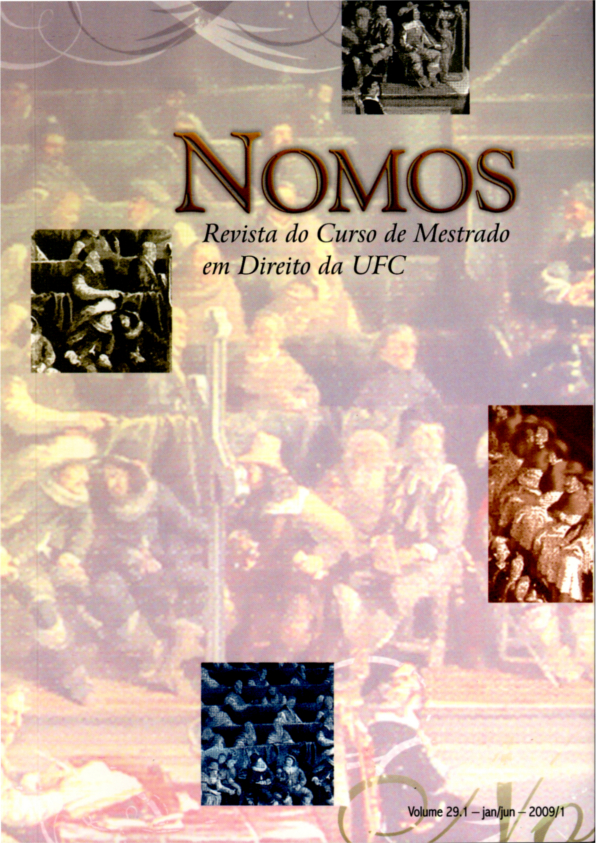“ORAL, WRITTEN AND ELECTRO NIC PROCEEDINGS AND THEIR EFFICIENCY”
Palavras-chave:
Oralidade, Formalidade, Terminologia, Direito civilResumo
Este artigo busca estudar as formas utilizadas nos casos de resolução de conflito dentro da esfera do direito civil. Dentre estas formas encontram-se a oralidade, caracterizada por sua informalidade, a forma escrita que ainda domina este âmbito do direito em boa parte do mundo e a forma eletrônica que vem ganhando espaço nos últimos anos com o avanço tecnológico. Segundo o autor é muito raro um procedimento puramente oral, pois ao fim de tal procedimento se deverá ter pelo menos um documento escrito seja ele um acordo, uma ata de audiência ou ainda uma sentença. Num estudo histórico, observa-se que a forma escrita, que caracteriza mais formalidade aos procedimentos jurídicos está mais presente que as outras formas.
Referências
Arens, Mündlichkeitsprinzip und Prozessbeschleunigung im Zivilprozess, 1971.
Dietrich, „Vereinbarkeit der Elektronifizierung der Justiz und der Gerichtsver
fahren mit dem Mündlichkeitsgrundsatz“,in:Ho/Gilles (Hrsg.), Justiz und Teletechnik, Seoul University, Faculty of Law, 2005,159.
Fezer, Die Funktion der mündlichen Verhandlung im Zivilprozess und Strafprozess, 1970.
Gilles, “Introduction as Chairman of Session No.5, World Conference on Procedural Law, Mexico City,2003: Abstracts/ Theses Concerning the Subject : The Relationship Between Parties, Judges and Lawyers” in: Gilles/Pfeiffer (Hrsg.), Prozessrecht und Rechtskulturen /Procedural Law and Legal Cultures 2004, 147.
Ders., “German National Report, Theme 2: Information Technology on Litigation Remarks to some General Aspects in concern of Civil Court Proceedings, Teletechnology and “E-Procedural Law, World Conference of Civil Procedure, Salvador/Bahia 2007.” in:Gilles /Pfeiffer (Hrsg.) Neue Tendenzen im Prozessrecht / New Trends in Procedural Law, 2008.153.
Ders. “Zivilgeerichtsverfahren,Teletechnik und E-Prozessrecht“ In : ZZP 118 (2005), 399.
Ders., “Civil Justice Systems in East and West. Fundamental Current Reform Movements and some Speculations about Civil Conflict Resolution Systems of the Future” in: Vilnius University (ed.) The Resent Tendencies of Development in Civil Procedure Law- between East and West, 2007, 26.
Ders., Civil Procedure and Constitution – Observations on the Hyperconstitutionalization of plain Procedural Law from a German Perspective (soon published in Revista Latin-Americana de Estudos Constitucionais), Brasil.
Gottwald, “Argumentation im Zivilprozessrecht”, in: ZZP-Sonderdruck, Januar 1980, Heft 1.
Hahn, „Der so genannte Verhandlungsgrundsatz im Zivilprozess“ in; JA 1991,319.
Henckel, „Die mündliche Verhandlung im Zivilprozess aus kommunikationspsychologischer Sicht“ in:, ZZP110 (1997).
Hendel, „Wider den Niedergang der Kultur der mündlichen Verhandlung im Zivilprozess“ in:, DRiZ 1992.
Kip, Das so genannte Mündlichkeitsprinzip, 1952.
Schreiber,“ Der Verhandlungsgrundsatz im Zivilprozess“ in:, Jura, 1989, 86.
Taniguchi, „Between Verhandlungsmaxime and Adversary System – in search for Place of Japanese Civil Procedure” In: Festschrift für Karlheinz Schwab, 1990, 487.
Westerwelle, Der Mündlichkeitsgrundsatz in der deutschen Zivilprozessordnung, 1998.
Downloads
Publicado
Edição
Seção
Licença
Autores que publicam nesta revista concordam com os seguintes termos:
- Autores mantêm os direitos autorais e concedem à Revista NOMOS o direito de primeira publicação, com o trabalho simultaneamente licenciado sob a Creative Commons Attribution License, que permite o compartilhamento do trabalho com reconhecimento da autoria do trabalho e publicação inicial nesta revista.
- Autores têm autorização para assumir contratos adicionais separadamente, para distribuição não-exclusiva da versão do trabalho publicada nesta revista (ex.: publicar em repositório institucional ou como capítulo de livro), com reconhecimento de autoria e publicação inicial nesta revista.
- Autores têm permissão e são estimulados a publicar e distribuir seu trabalho online (ex.: em repositórios institucionais ou na sua página pessoal) a qualquer ponto antes ou durante o processo editorial, já que isso pode gerar alterações produtivas, bem como aumentar o impacto e a citação do trabalho publicado.
- Autores são responsáveis pelo conteúdo constante no manuscrito publicado na revista.





